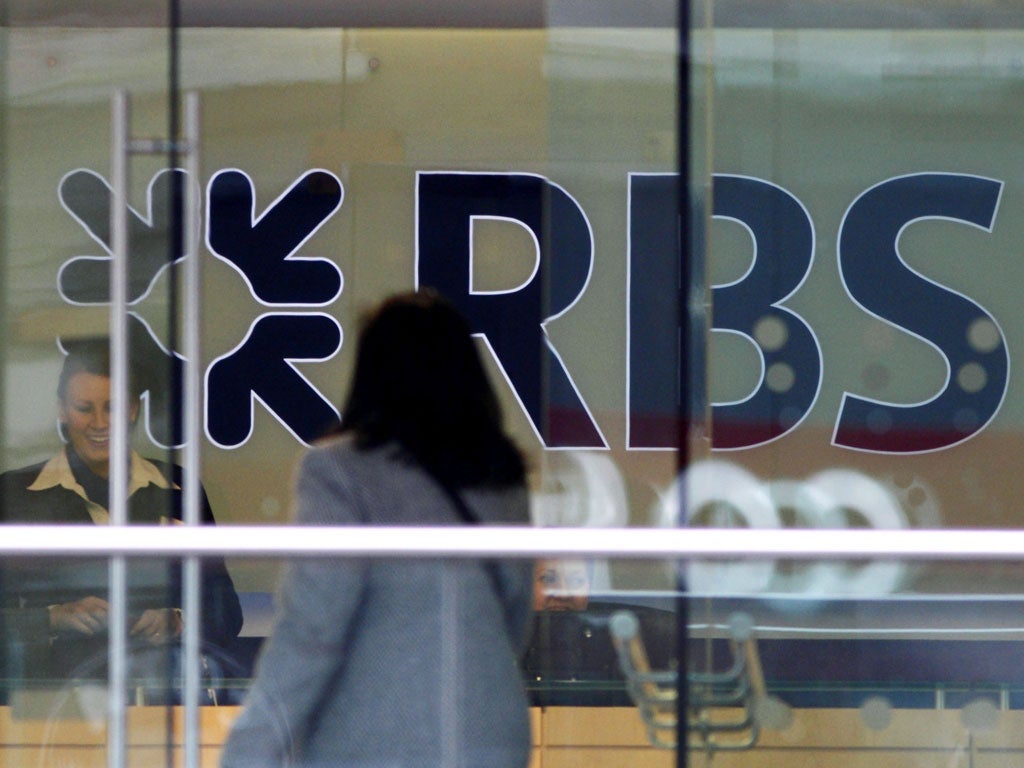
Royal Bank of Scotland boss Stephen Hester today said the bailed-out lender was “clearly on track” for recovery as it prepared to repay the last of the emergency loans taken during the financial crisis.
But Mr Hester, who announced an improvement in first quarter operating profits to £1.1 billion from losses of £144 million last year, said he remained cautious as the state-owned bank had a “number of milestones that lie ahead”.
Shares in RBS, which also owns NatWest, rose 3% after the bank said that by the end of next week it will have repaid in full the £163 billion in loans from the UK government, Bank of England and US Federal Reserve with a final £5.7 billion instalment.
But the UK government will still own 82% of shares in the bank and the lender has yet to withdraw from the Asset Protection Scheme, in which taxpayers effectively insure its poorer-quality loans against future losses, while it has not resumed an ordinary dividend.
And the bank's share price at around 25p is half the 50p price tag paid by the Government for its stake at the height of the financial crisis.
RBS also announced a bigger hit for covering payment protection insurance complaints as it increased the charge by £125 million to £1.2 billion.
But Mr Hester said there had been good progress in “removing mistakes of the past”.
He said: “We are clearly on track for the recovery that we've laid out but also one should never get too self-satisfied in these things, the outside world will affect what we do and some things will get better, some things will get worse.”
He added: “I'm naturally optimistic and believe things will improve. But of course you'd expect a banker to be cautious, I feel cautious.”
The £163 billion in repaid emergency loans included £36.6 billion in emergency liquidity assistance from the Bank of England, and some £52 billion from the US Federal Reserve, as well as £75 billion from the Credit Guarantee Scheme.
The progress means the lender can now start paying out certain dividends that it was banned from handing out under bailout conditions.
But the bank along with hundreds of banks across Europe, is still receiving some central bank support via the 10 billion euros (£8 billion) of cheap three-year loans from the European Central Bank's long-term refinancing operation.
However, this has been seen by the City as an opportunity to raise cheap funding rather than necessary financial support.
The RBS announcement comes after fellow part-nationalised bank Lloyds said it will have repaid all of its £157 billion of emergency loans by the end of the year.
Keith Bowman, equity analyst at Hargreaves Lansdown Stockbrokers, said: “In all, life support is being removed, with the bank's near failure now being consigned to another chapter in its history.”
UK retail operating profits were up 4% at £477 million, compared with £458 million, but Ireland's Ulster Bank still faces “exceedingly difficult” market conditions and recorded operating losses of £310 million, driven by bad debts.
The retail and commercial division has been hit by a weak economy and low interest rates, RBS said, but delivered return on equity of 13%, excluding Ulster.
The investment banking arm, which was subject to a huge restructuring in January, involving job losses and closures, rebounded amid improved market conditions in the first quarter. The division recorded operating profits of £824 million, compared with a loss of £109 million in the previous quarter.
Insurance arm Direct Line Group recorded a 25% increase in operating profits to £84 million as progress continued in hiving off the business through a public flotation.
The group's charge on bad debts was down 22% from the previous quarter and down 33% on a year ago at £1.3 billion.
The lender paid out £14.3 billion of gross new loans and facilities to UK businesses during the first quarter of the year, including £7.9 billion to small and medium enterprises (SMEs) - up 18% from the first quarter of 2011.
PA
Subscribe to Independent Premium to bookmark this article
Want to bookmark your favourite articles and stories to read or reference later? Start your Independent Premium subscription today.

Join our commenting forum
Join thought-provoking conversations, follow other Independent readers and see their replies